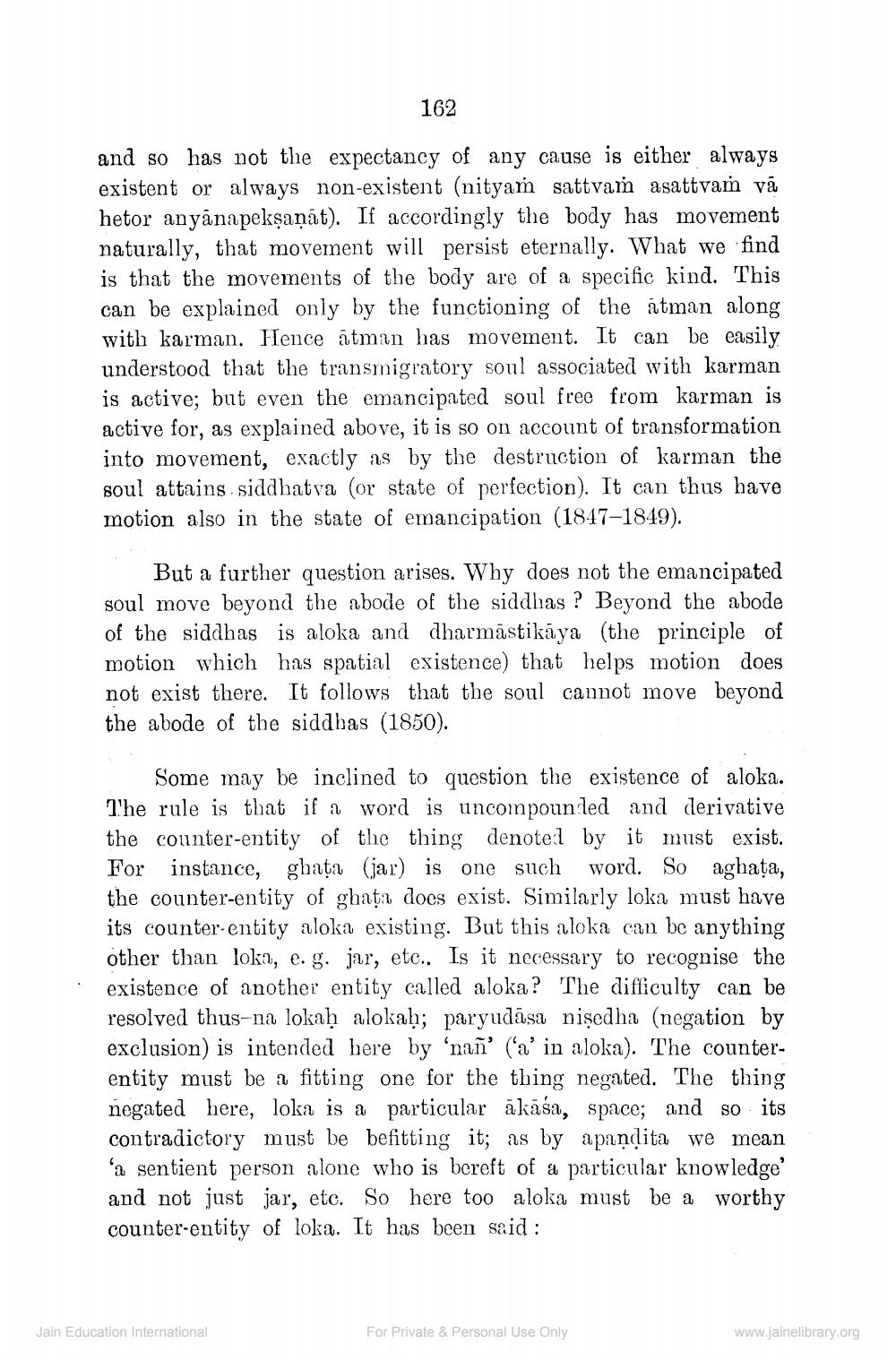________________
162
and so has not the expectancy of any cause is either always existent or always non-existent (nityam sattvam asattvam vā hetor anyānapekṣaṇāt). If accordingly the body has movement naturally, that movement will persist eternally. What we find is that the movements of the body are of a specific kind. This can be explained only by the functioning of the atman along with karman. Hence ātman has movement. It can be easily. understood that the transmigratory soul associated with karman is active; but even the emancipated soul free from karman is active for, as explained above, it is so on account of transformation into movement, exactly as by the destruction of karman the soul attains siddhatva (or state of perfection). It can thus have motion also in the state of emancipation (1847-1849).
But a further question arises. Why does not the emancipated soul move beyond the abode of the siddhas ? Beyond the abode of the siddhas is aloka and dharmāstikāya (the principle of motion which has spatial existence) that helps motion does not exist there. It follows that the soul cannot move beyond the abode of the siddbas (1850).
Some may be inclined to question the existence of aloka. The rule is that if a word is uncompounded and derivative the counter-entity of the thing denoted by it must exist. For instance, ghata (jar) is one such word. So aghata, the counter-entity of ghata does exist. Similarly loka must have its counter-entity aloka existing. But this aloka can be anything other than loka, e. g. jar, etc.. Is it necessary to recognise the existence of another entity called aloka? The difficulty can be resolved thus-na lokaḥ alokah; paryudāsa niședha (negation by exclusion) is intended here by 'nañ(a'in aloka). The counterentity must be a fitting one for the thing negated. The thing negated here, loka is a particular ákāśa, space; and so its contradictory must be befitting it; as by apandita we mean fa sentient person alone who is bereft of a particular knowledge' and not just jar, etc. So here too aloka must be a worthy counter-entity of loka. It has been said:
Jain Education International
For Private & Personal Use Only
www.jainelibrary.org




